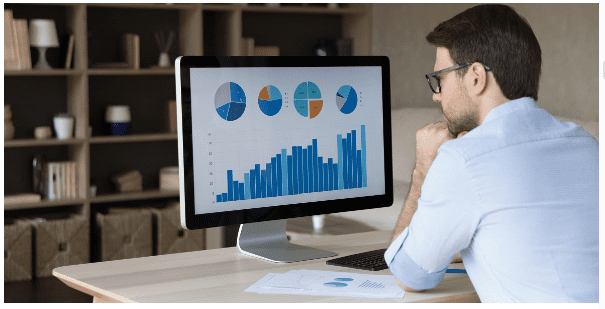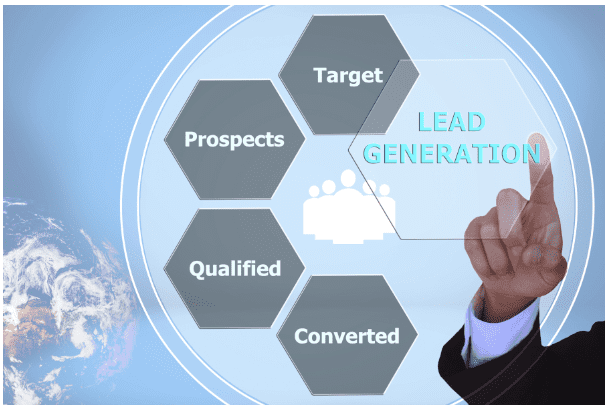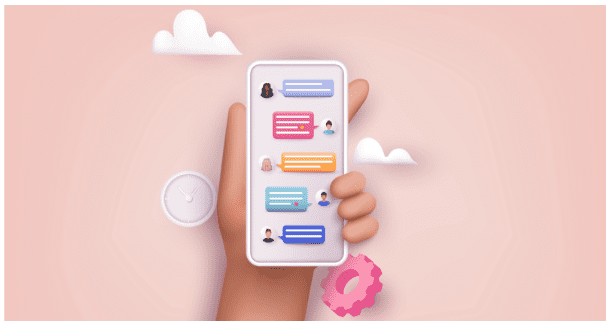Table of Contents
ToggleStreamlining Sales and Marketing: Leveraging Marketing Automation for SaaS
In today’s competitive SaaS landscape, streamlining sales and marketing processes is crucial for success. One powerful tool that can help achieve this goal is marketing automation. By leveraging marketing automation, SaaS companies can automate repetitive tasks, nurture leads, and drive conversions, ultimately improving their bottom line.
Statistics show that businesses using marketing automation experience an average of 14.5% increase in sales productivity and a 12.2% reduction in marketing overhead costs. This means that by implementing marketing automation, SaaS companies can achieve higher efficiency and cost savings.
For instance, consider a SaaS company offering project management software. They can automate lead scoring and nurturing with marketing automation, ensuring that only qualified leads are passed on to the sales team. By segmenting leads based on their behavior and engagement, the company can personalize its marketing campaigns and deliver targeted content, resulting in higher conversion rates.
Furthermore, marketing automation allows for effective lead tracking and analytics. SaaS companies can monitor customer interactions, track website engagement, and analyze email campaign performance. With these insights, businesses can optimize their marketing strategies, identify bottlenecks in the sales funnel, and make data-driven decisions to drive revenue growth.
By embracing marketing automation, SaaS companies can streamline their sales and marketing processes, boost productivity, reduce costs, and drive conversions. It’s a game-changer that enables businesses to deliver personalized experiences, engage with prospects effectively, and ultimately achieve sustainable growth in the highly competitive SaaS market.
Understanding the Power of Marketing Automation
Marketing automation has emerged as a powerful tool in digital marketing, enabling businesses to streamline their marketing efforts and achieve better results. By automating repetitive tasks, nurturing leads, and delivering personalized experiences, marketing automation empowers SaaS companies to unlock their full potential and drive growth.
- One of the key benefits of marketing automation is its ability to save time and increase efficiency. Studies show that marketing automation can reduce the time spent on manual tasks by up to 80%, allowing teams to allocate their efforts toward high-value activities. SaaS companies can free up valuable resources and focus on strategic initiatives by automating email campaigns, lead scoring, and social media posting.
- Moreover, marketing automation empowers businesses to nurture leads at scale. SaaS companies can deliver targeted content and relevant offers by creating personalized workflows based on customer behavior and preferences, boosting revenue. Companies that use marketing automation to nurture leads experience a 451% increase in qualified leads, highlighting its significant impact on the sales pipeline.
- Furthermore, marketing automation provides valuable insights and analytics to drive data-informed decision-making. By tracking customer interactions, monitoring campaign performance, and analyzing metrics, SaaS companies gain a deeper understanding of their audience and the effectiveness of their marketing strategies. This knowledge allows for continuous optimization and refinement of campaigns, ensuring that resources are allocated to the most impactful initiatives.
Marketing automation empowers SaaS companies by saving time, nurturing leads effectively, and providing valuable insights. By leveraging this powerful tool, businesses can optimize their marketing efforts, improve customer engagement, and drive growth in a highly competitive landscape. It is essential to a successful digital marketing strategy for any SaaS business looking to achieve long-term success.

1.1 What is Marketing Automation?
Marketing automation uses technology and software platforms to automate repetitive marketing tasks and processes. It enables businesses, including SaaS companies, to streamline their marketing efforts, improve efficiency, and deliver personalized experiences to their target audience.
At its core, marketing automation involves using predefined workflows and rules to execute various marketing activities automatically. These activities include email campaigns, lead nurturing, social media scheduling, customer segmentation, and scoring. By automating these tasks, marketers can save time and focus on strategic initiatives that drive business growth.
Marketing automation platforms typically provide a centralized system where businesses can manage their campaigns, track customer interactions, and analyze performance metrics. These platforms often include features like email marketing, customer relationship management (CRM) integration, lead tracking, analytics, and reporting.
One of the key benefits of marketing automation is its ability to deliver personalized experiences at scale. By capturing and analyzing customer data, such as behavior, preferences, and demographics, businesses can create targeted and relevant content for different audience segments. This personalized approach helps improve engagement, effectively nurture leads, and increase conversion rates.
Marketing automation is a technology-driven approach that allows businesses, including SaaS companies, to automate marketing tasks, streamline processes, and deliver personalized experiences to their audience. It is a powerful tool that enables marketers to save time, increase efficiency, and drive better results in their marketing efforts.
1.2 Key Components of Marketing Automation
Marketing automation encompasses various components that work together to automate and optimize marketing processes. Here are some key features of marketing automation:
- Workflow Automation: Workflows form the backbone of marketing automation. They are the steps and actions that guide the customer journey. Workflows can include sending personalized emails, triggering specific actions based on customer business relatives, and more. Companies can deliver timely and relevant messages to their audience by automating these workflows.
- Email Marketing: Email marketing is a vital component of marketing automation. Email automation helps nurture leads, promote engagement, and drive conversions. Automation platforms enable businesses to create and send personalized emails based on triggers and customer actions. These platforms often provide features like email templates, segmentation, A/B testing, and analytics.
- Lead Scoring and Nurturing: Lead scoring assigns values to leads based on their behavior and engagement. Lead nurturing involves delivering targeted content and communications to move leads through the sales funnel, converting them into customers. Marketing automation platforms track and analyze lead interactions, such as website visits, email opens, and downloads, to determine their level of interest and readiness to make a purchase.
- CRM Integration: Marketing automation platforms often integrate with Customer Relationship Management (CRM) systems. This integration enables seamless data sharing between marketing and sales teams, ensuring a unified view of customer interactions. By aligning marketing automation with CRM, businesses can track leads, measure campaign effectiveness, and facilitate efficient lead handoff from marketing to sales.
- Analytics and Reporting: Marketing automation platforms provide robust analytics and reporting capabilities. These tools allow businesses to track and measure key performance metrics, such as campaign engagement, conversion rates, ROI, and customer behavior. Marketers can gain valuable insights, optimize campaigns, and make data-driven decisions to improve marketing effectiveness by analyzing these data.
- Social Media Automation: Social media is crucial in modern marketing strategies. Marketing automation platforms often offer social media automation features, allowing businesses to schedule and publish posts across multiple social media platforms. This streamlines social media management, ensures consistent messaging, and saves time for marketers.
By leveraging these key components, businesses can automate and optimize their marketing processes, deliver personalized experiences, nurture leads, and drive conversions. Marketing automation empowers enterprises to engage with their audience efficiently and achieve better results in their marketing efforts.

1.3 The Impact of Marketing Automation on Sales and Marketing
The implementation of marketing automation has a significant impact on both sales and marketing departments within a business. Here are some key ways marketing automation influences sales and marketing:
- Enhanced Lead Generation: Marketing automation enables businesses to capture and nurture leads effectively. Marketers can identify and prioritize qualified leads by automating lead scoring and nurturing processes, ensuring that the sales team focuses on the most promising opportunities. This targeted approach leads to higher-quality leads, shorter sales cycles, and increased conversion rates.
- Improved Sales and Marketing Alignment: Marketing automation facilitates better collaboration and alignment between sales and marketing teams. Integrating marketing automation with CRM systems allows both groups to access a unified view of customer data, allowing for seamless lead handoff, improved communication, and shared insights. This alignment increases efficiency, better lead management and improved revenue generation.
- Personalized and Relevant Content: Marketing automation enables businesses to deliver personalized and relevant content to their audience. By leveraging customer data and behavior tracking, marketers can segment their audience and tailor messages, offers, and recommendations accordingly. This personalization drives higher engagement, increases customer satisfaction, and improves conversions and sales.
- Streamlined Marketing Processes: Businesses can automate repetitive and time-consuming marketing tasks with marketing automation. This automation streamlines marketing processes, reduces manual effort, and allows marketers to focus on strategic initiatives. Businesses can achieve greater efficiency and productivity businesses can achieve greater efficiency and productivity by automating email campaigns.
- Data-Driven Decision-Making: Marketing automation provides valuable insights and analytics that enable data-driven decision-making. Marketers can track and measure the performance of campaigns, monitor customer interactions, and analyze key metrics. These insights help identify successful strategies, optimize marketing efforts, and make informed decisions to drive revenue growth.
- Improved Customer Engagement and Experience: Marketing automation enables businesses to deliver personalized and timely customer messages. By nurturing leads with relevant content, responding to customer actions, and automating customer communications, companies can enhance customer engagement and provide a seamless customer experience. This leads to higher customer satisfaction, increased loyalty, and improved retention rates.
Marketing automation profoundly impacts sales and marketing by enhancing lead generation, improving alignment between teams, delivering personalized content, streamlining processes, enabling data-driven decision-making, and improving customer engagement and experience. It is a powerful tool that drives efficiency, effectiveness, and revenue growth for businesses in today’s competitive landscape.
Leveraging Marketing Automation in SaaS
Leveraging marketing automation in the SaaS industry can provide significant benefits and contribute to the overall success of a SaaS business. Here’s how marketing automation can be effectively utilized in the SaaS sector:
- Lead Nurturing and Onboarding: Marketing automation allows SaaS companies to nurture leads and guide them through the customer journey. Businesses can educate prospects, build trust, and accelerate conversion by delivering personalized content, targeted emails, and automated onboarding sequences. This computerized approach ensures a seamless onboarding experience, increases user engagement, and reduces churn rates.
- Behavior-Based Segmentation: Marketing automation enables SaaS companies to segment their user base based on specific behaviors, actions, or characteristics. Businesses can identify user segments and deliver tailored messages and offers by tracking user interactions, such as feature usage, login frequency, or subscription level. This personalized approach enhances user satisfaction, drives upsell, and increases customer retention.
- In-App Messaging and Notifications: Marketing automation platforms often provide in-app messaging capabilities, allowing SaaS companies to communicate with users directly within their software. This feature enables businesses to send relevant messages, provide updates, and offer support, increasing user engagement and encouraging feature adoption. In-app messaging can also upsell or cross-sell additional products or features, driving revenue growth.
- Automated Upselling and Renewals: Marketing automation can identify upselling opportunities and manage subscription renewals. SaaS companies can send targeted upsell offers and timely renewal reminders by tracking usage patterns, customer behavior, and contract expiration dates. This proactive approach increases upsell conversion rates and reduces customer churn.
- Customer Retention and Customer Success: Marketing automation is crucial for SaaS businesses’ customer retention and success. SaaS companies can increase customer satisfaction, encourage advocacy, and foster long-term relationships by delivering proactive support, training resources, and relevant updates. Automated customer success campaigns, educational content, and onboarding sequences help users maximize the value they get from the software.
- Analytics and ROI Tracking: Marketing automation platforms provide robust analytics and reporting features. SaaS companies can track key metrics such as customer acquisition cost (CAC), customer lifetime value (CLTV), conversion rates, and engagement levels. These insights enable businesses to evaluate the effectiveness of marketing campaigns, optimize their strategies, and measure their marketing efforts return on investment (ROI).
Marketing automation offers numerous opportunities for SaaS companies to streamline their marketing processes, nurture leads, drive upsells, improve customer retention, and maximize revenue. By leveraging the power of automation and personalized communication, SaaS businesses can enhance the user experience, strengthen customer relationships, and achieve long-term success in a highly competitive industry.

2.1 Lead Generation and Nurturing
Lead generation and nurturing are vital components of a successful marketing strategy in any industry, including the SaaS sector. Here’s how SaaS companies can leverage marketing automation to enhance lead generation and nurturing:
- Landing Pages and Forms: Marketing automation platforms enable SaaS companies to create optimized landing pages and forms to capture leads. By using compelling copy, clear calls-to-action, and intuitive forms, businesses can entice visitors to provide their contact information in exchange for valuable content or offers. Automation tools can seamlessly integrate with CRM systems, ensuring that leads are captured and stored for further nurturing.
- Lead Scoring: Marketing automation allows SaaS companies to implement lead-scoring models based on predefined criteria. By assigning scores to leads based on factors like engagement level, demographic data, and firmographics, businesses can identify the most qualified leads. This enables the sales team to prioritize their efforts on leaders with a higher likelihood of conversion, improving efficiency and closing rates.
- Personalized Email Campaigns: Marketing automation platforms enable SaaS companies to deliver targeted and customized email campaigns to nurture leads. Automation tools can trigger emails based on specific actions, such as downloading a whitepaper or completing a free trial, ensuring relevant and timely communication. Businesses can send tailored content, product recommendations, and educational resources by segmenting leads based on their behavior, interests, and stage in the customer journey.
- Drip Campaigns: Drip campaigns are a series of automated emails or messages sent at regular intervals to nurture leads over time. Marketing automation platforms allow SaaS companies to set up drip campaigns that educate, engage, and build trust with leaders. These campaigns can provide valuable information, showcase product features, address pain points, and ultimately guide tips toward purchasing.
- Lead Follow-Up and Sales Notifications: Marketing automation can streamline lead follow-up processes by automating notifications to sales teams when a lead meets specific criteria or exhibits buying signals. Automated notifications ensure prompt action, enabling sales representatives to reach out to leads while they are still engaged and interested. This improves response time, enhances the customer experience, and increases the chances of converting leads into customers.
- Lead Nurturing Workflows: Marketing automation platforms allow SaaS companies to create complex lead nurturing workflows that guide leads through the sales funnel. These workflows can include automated actions, such as sending targeted content, scheduling follow-up calls, or triggering personalized offers based on lead behavior and engagement. Lead nurturing workflows ensure consistent and systematic communication with leads, nurturing them towards conversion.
By leveraging marketing automation for lead generation and nurturing, SaaS companies can capture more leads, prioritize sales efforts, deliver personalized experiences, and increase conversion rates. Automating and optimizing these processes enables businesses to scale their lead-generation efforts and build stronger relationships with potential customers.
2.2 Email Marketing and Campaign Automation
Email marketing and campaign automation are crucial in engaging prospects, nurturing leads, and driving conversions for SaaS companies. Here’s how SaaS businesses can leverage marketing automation to enhance their email marketing campaigns:
- Segmentation and Personalization: Marketing automation platforms enable SaaS companies to segment their email lists based on various criteria such as demographics, user behavior, or stage in the customer journey. Businesses can deliver targeted and personalized content to different groups by segmenting the audience, increasing relevancy and engagement. Automation tools also allow for dynamic content insertion, where specific content blocks within emails can be personalized based on the recipient’s data.
- Welcome and Onboarding Emails: Marketing automation makes setting up automated welcome and onboarding email sequences for new users or subscribers easy. These emails can provide a warm welcome, introduce critical features, offer tutorials or training resources, and guide users through the initial steps of getting started with the SaaS product. Well-crafted onboarding sequences foster user engagement, reduce churn and increase product adoption.
- Behavioral Triggers: Automation platforms allow SaaS companies to set up triggers based on user behavior. These behavioral triggers can send follow-up messages, offer personalized recommendations, or provide targeted incentives, maximizing the chances of conversion and driving engagement. For example, when a user performs a specific action, such as signing up for a free trial or abandoning their cart, a triggered email can be sent automatically.
- Drip Campaigns: Drip campaigns are a series of automated emails sent at regular intervals to nurture leads or engage users over time. Drip campaigns help build relationships, maintain brand awareness, and keep prospects and customers entertained throughout their journey. SaaS companies can set up drip campaigns to deliver educational content, showcase product features, share customer success stories, or provide special offers.
- Re-Engagement and Win-Back Campaigns: Marketing automation allows SaaS businesses to re-engage inactive users or win back customers who have churned. By setting up automated re-engagement campaigns, companies can send targeted emails with exclusive offers, product updates, or reminders to encourage users to take action. These campaigns help rekindle interest, regain trust, and bring back customers who may have disengaged.
- A/B Testing and Analytics: Marketing automation platforms provide A/B testing capabilities, allowing SaaS companies to test different subject lines, email designs, or call-to-action buttons to optimize campaign performance. Additionally, robust analytics and reporting tools offer insights into open email rates, click-through rates, conversions, and more. These metrics help businesses measure their email campaigns’ effectiveness, identify improvement areas, and make data-driven decisions to enhance engagement and conversion rates.
By leveraging email marketing and campaign automation, SaaS companies can deliver targeted, personalized, and timely messages to their audience, nurture leads, drive conversions, and maximize customer engagement. Marketing automation streamlines email workflows, increases efficiency, and allows for continuous optimization to achieve the best possible results from email marketing efforts.

2.3 Personalization and Targeted Messaging
Personalization and targeted messaging are essential strategies in the SaaS industry to engage users, nurture leads, and drive conversions. Leveraging marketing automation, SaaS companies can deliver personalized experiences at scale. Here’s how personalization and targeted messaging can be effectively implemented:
- Dynamic Content: Marketing automation platforms enable SaaS businesses to dynamically insert personalized content within emails, landing pages, or website experiences. Companies can deliver highly relevant and customized messages by utilizing customer data, such as name, company, or past interactions. For example, addressing recipients by name or referencing their specific needs or preferences in the content creates a more personalized and engaging experience.
- Behavioral Segmentation: Marketing automation allows SaaS companies to segment their audience based on user behavior, actions, or preferences. Businesses can create dynamic segments and deliver targeted messaging by tracking user interactions, such as website visits, feature usage, or content downloads. For instance, a SaaS company offering project management software can segment users based on their interest in specific project management features and send tailored messages highlighting the benefits of those features.
- Triggered Campaigns: Marketing automation platforms enable the setup of triggered campaigns based on specific user actions or events. These started campaigns deliver timely and personalized messages that align with the user’s journey, increasing the chances of engagement and conversion. For example, when a user completes a free trial or reaches a particular milestone, a triggered email can be automatically sent with relevant content or an offer to encourage conversion.
- User Lifecycle Messaging: Marketing automation enables SaaS businesses to deliver targeted messaging throughout the user lifecycle. By mapping out the different stages, from prospect to trial user to paying customer, companies can create automated email sequences that deliver the right messages at the right time. This allows for personalized onboarding, upselling opportunities, renewal reminders, or customer success communications tailored to the user’s journey.
- Account-Based Marketing (ABM): For SaaS companies targeting specific accounts or high-value customers, marketing automation can support account-based marketing efforts. By integrating marketing automation with CRM systems, businesses can align marketing and sales activities with personalizing messaging and interactions with target accounts. This includes personalized emails, targeted content, and coordinated marketing efforts tailored to the specific needs and challenges of the targeted accounts.
- Data-Driven Insights: Marketing automation platforms provide valuable data and insights on customer behavior, engagement, and preferences. By analyzing this data, SaaS companies can better understand their audience, identify patterns, and tailor messaging accordingly. Data-driven insights allow businesses to continuously refine and optimize their personalization and messaging strategies to improve customer engagement and conversion rates.
Personalization and targeted messaging are critical elements in building strong customer relationships and maximizing the impact of marketing efforts in the SaaS industry. Leveraging marketing automation allows SaaS companies to implement personalized and targeted messaging strategies effectively. By utilizing dynamic content, behavioral segmentation, triggered campaigns, lifecycle messaging, ABM, and data-driven insights, businesses can deliver personalized experiences that resonate with users, nurture leads, and drive conversions.
2.4 Analytics and Reporting
Analytics and reporting are integral components of marketing automation for SaaS companies. They provide valuable insights into the performance and effectiveness of marketing campaigns, enabling data-driven decision-making and optimization. Here’s how analytics and reporting are leveraged in marketing automation:
- Campaign Performance Tracking: Marketing automation platforms offer robust analytics to track the performance of email campaigns, landing pages, and other marketing assets. SaaS companies can measure open rates, click-through rates, conversion rates, and engagement levels. By monitoring these key performance indicators (KPIs), businesses can assess their campaigns’ effectiveness, identify improvement areas, and make data-informed decisions.
- Funnel Analysis: Analytics in marketing automation allow for in-depth funnel analysis. SaaS companies can track the customer journey from initial lead acquisition to conversion. By analyzing the funnel, businesses can identify potential bottlenecks or areas of drop-off, understand customer behavior at each stage, and optimize the user experience to improve conversion rates and customer retention.
- A/B Testing: Marketing automation platforms provide A/B testing capabilities to experiment with different variables within campaigns. SaaS companies can test other subject lines, email content, call-to-action buttons, or landing page designs to determine which versions perform better. By analyzing the results, businesses can make data-driven decisions, refine their messaging, and optimize campaigns for higher engagement and conversion rates.
- Customer Segmentation Analysis: Marketing automation platforms offer insights into customer segmentation and behavior. SaaS companies can analyze customer data to understand different segments’ characteristics, preferences, and patterns. This information helps tailor messages, offers, and campaigns to specific customer groups, increasing relevance and improving overall marketing performance.
- ROI Measurement: Analytics and reporting in marketing automation enable SaaS companies to measure their marketing efforts return on investment (ROI). Businesses can evaluate the cost-effectiveness of their campaigns and channels by tracking metrics like customer acquisition cost (CAC), customer lifetime value (CLTV), and revenue attribution. This analysis helps allocate resources to the most profitable strategies and optimize marketing spend.
- Customized Reports: Marketing automation platforms allow businesses to generate customized reports that consolidate data from various campaigns and channels. These reports provide a holistic view of marketing performance, highlighting trends, patterns, and opportunities for improvement. SaaS companies can create comprehensive information tailored to their specific goals and metrics.
By leveraging analytics and reporting in marketing automation, SaaS companies gain valuable insights into campaign performance, customer behavior, and return on investment. These insights enable businesses to refine their marketing strategies, optimize campaigns, and make data-driven decisions to achieve better results and drive growth in the highly competitive SaaS industry.

Final Thoughts
In the fast-paced and competitive world of SaaS, leveraging marketing automation can be a game-changer for businesses. By harnessing the power of automation, personalization, and data-driven insights, SaaS companies can streamline their sales and marketing processes, enhance lead generation and nurturing, and drive conversions.
Marketing automation empowers SaaS businesses to deliver personalized experiences, target specific segments, and effectively engage with prospects and customers. The ability to nurture leads at scale, deliver timely and relevant messaging, and track customer interactions significantly benefits sales and marketing efforts. By automating repetitive tasks, marketers can focus on strategic initiatives, optimize campaigns, and allocate resources more efficiently.
Furthermore, analytics and reporting in marketing automation provide valuable insights into campaign performance, customer behavior, and return on investment. These insights enable SaaS companies to make data-driven decisions, refine strategies, and continually improve marketing effectiveness. By leveraging analytics, businesses can identify areas for improvement, optimize the customer journey, and drive revenue growth.
As the SaaS industry evolves, marketing automation will remain vital for businesses aiming to stand out. Its ability to streamline processes, personalize messaging, and drive data-driven decision-making makes it an indispensable asset for SaaS companies looking to achieve sustainable growth, enhance customer experiences, and maintain a competitive edge.
By understanding the power of marketing automation, SaaS companies can unlock new opportunities, nurture relationships, and maximize the impact of their sales and marketing efforts in the dynamic and ever-changing landscape of the SaaS industry.
- Success vs. Significance: Understanding the Difference and Achieving Both - October 1, 2023
- 8 Steps to SaaS Success: From Idea to Business - September 30, 2023
- The Importance of Testing in SaaS: Ensure Quality and Success - September 29, 2023